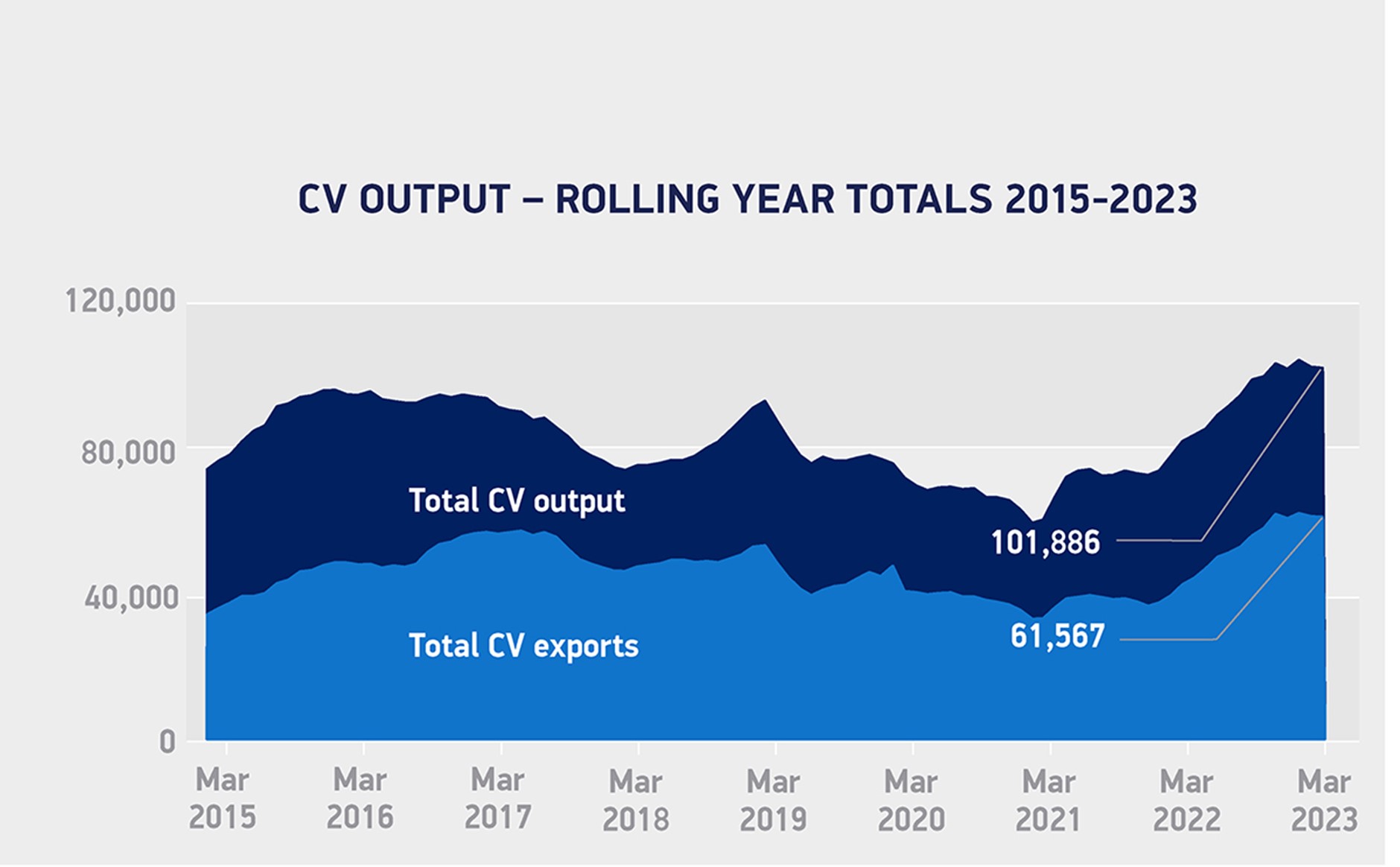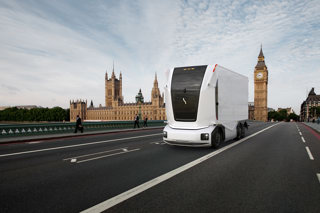UK commercial vehicle (CV) manufacturing decreased by 3% to 9,822 units in March, marking a second consecutive monthly decline, according to the latest figures from the Society of Motor Manufacturers and Traders (SMMT).
The decline of just 308 units must be set against March 2022, says the SMMT, which was the best March since 2011, and draws an uneven first quarter of the year to a close, with a large rise in January followed by declines in February and March as supply shortages continued to affect output.
The trade body’s production data shows that vehicles produced for overseas markets declined in March, with exports decreasing by 3.2% to 5,809 units – with 92.8% heading for the EU.
Output for the domestic market also fell, by 2.8% to 4,013 units.

The SMMT says that production volumes are expected to increase in the coming months as new electric van manufacturing comes on stream and supply chain constraints ease.
Despite the fall in March, manufacturing output remains up 1.1% in the year to date, at 25,554 units, with the growth driven primarily by a strong January performance and overseas demand.
Exports are up 2.6% in Q1 to 14,574 vehicles with 91.8% destined for EU customers, while production for the domestic market declined marginally by 0.8% to 10,980 units.
Mike Hawes, SMMT chief executive, said: “Despite some incidents of supply chain turbulence, UK commercial vehicle production kicked off 2023 in decent health and the overall trend is one of growth with volumes expected to rise as the year goes on.
“To secure long term success, however, given the once-in-a-generation challenges involved in transitioning to new, zero emission technologies, the sector must remain competitive.
“We therefore need Government to introduce measures that stimulate fresh investment, with the UK’s high cost of energy the biggest barrier to competitiveness, and action to reform business rates essential.”
























Login to comment
Comments
No comments have been made yet.